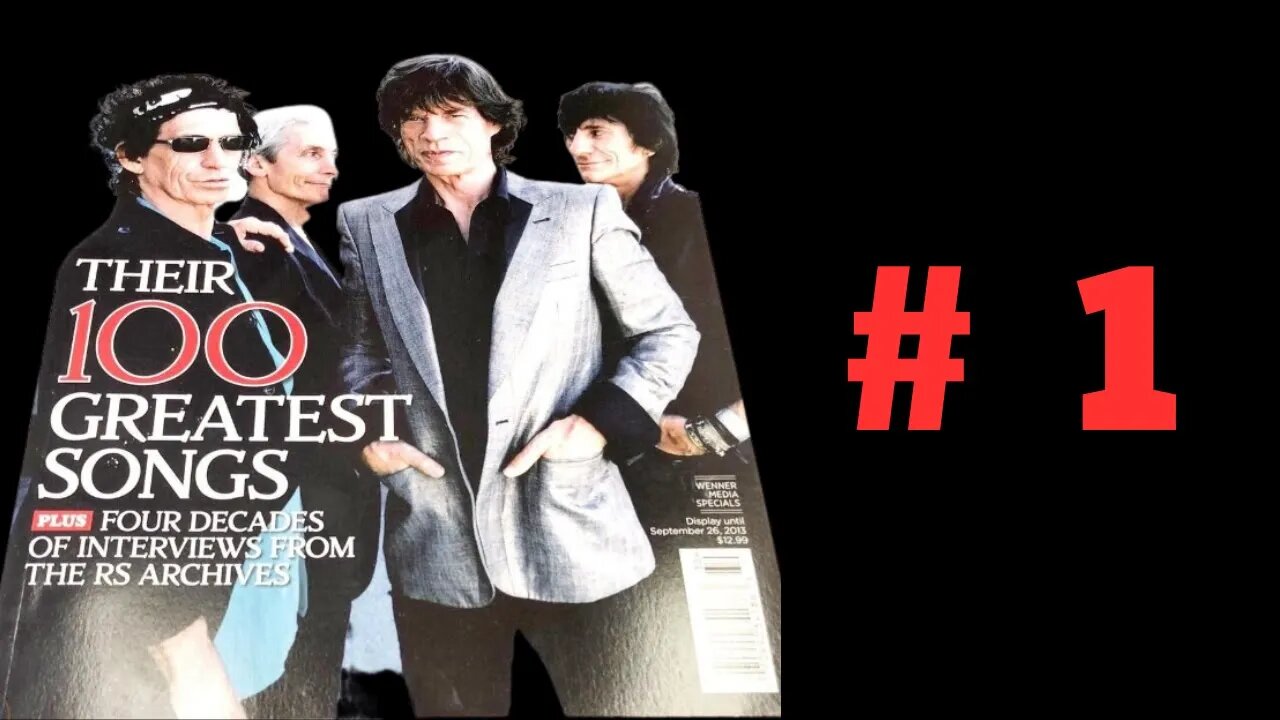Premium Only Content

How Satisfaction Changed Rock Music Forever... #shorts #rollingstones
The year was 1965 and the world was changing fast. In America, the Civil Rights movement was gaining momentum and threatening to upend the status quo. The Vietnam War was in full swing, and protests against it were cropping up across the country. In the UK, the Beatles were at the height of their popularity, having taken the world by storm with their catchy, upbeat tunes.
It was in this context that the Rolling Stones burst onto the scene with their hit song "Satisfaction." The track would prove to be a pivotal moment not only for the band, but for rock and roll as a whole.
Before we dive into how "Satisfaction" transformed the music industry, it's worth taking a moment to appreciate just how revolutionary the song was when it first dropped. In a lot of ways, "Satisfaction" was the quintessential Stones song – all snarling guitars, catchy riffs, and Mick Jagger's drawling, irreverent vocals.
But there was something different about "Satisfaction" that set it apart from the rest of the band's catalog. It wasn't just catchy – it was downright hypnotic. The opening riff, a series of four-note chords that sound like they're being played through a distorted amp, is instantly recognizable. Even if you've never heard the song before, you'll likely find yourself nodding your head along to the rhythm.
But it's not just the music that's infectious. The lyrics are also a big part of what made "Satisfaction" so subversive. While the Beatles were singing about holding hands and writing love letters, the Stones were singing about something altogether different: the frustrations of modern life.
Jagger's lyrics capture the feeling of being young, restless, and disillusioned in a changing world. "I can't get no satisfaction," he sings, bemoaning the constant barrage of advertisements, media messages, and societal expectations that he feels are holding him back.
It's a sentiment that would resonate with millions of young people around the world. "Satisfaction" became an instant smash hit, spending four weeks at the top of the charts in the US and cementing the Rolling Stones as one of the most exciting bands around.
But the song's impact went beyond just its infectious riff and rebellious lyrics. "Satisfaction" would prove to be a game-changer for the music industry, sparking a wave of experimentation and innovation that would pave the way for countless other artists in the years that followed.
One of the most significant ways that "Satisfaction" influenced the music industry was by pushing the boundaries of what was possible in terms of sound. The track's distorted guitar riff, played by Keith Richards, was unlike anything that had been heard on the radio before. It was edgy, dirty, and captivating – and it helped to establish the Stones as a band with a signature sound all their own.
But it wasn't just the guitar riff that made "Satisfaction" so groundbreaking. The song also features an innovative use of technology that allowed the band to create a sound that was both raw and polished.
According to legend, the Stones were experimenting with different ways to record their music in the lead-up to "Satisfaction." They had been using a technique known as "direct injection," which involved plugging their instruments directly into the mixing board and bypassing the conventional process of recording through a microphone.
The result was a sound that was cleaner and more precise than anything that had come before. But the band wasn't satisfied with that. They wanted a sound that was more distorted, more raw, more...real.
Enter the "fuzz box." This little device, which had been invented a few years earlier by a fellow named Glenn Snoddy, allowed the Stones to distort their guitar sound in a way that was previously impossible. By plugging their amps through the fuzz box, they were able to create a sound that was gritty, dirty, and impossibly cool.
This new sound quickly caught on with other artists, and before long, the fuzz box had become a staple of rock and roll. From the Beatles to the Jimi Hendrix Experience to Nirvana, countless artists would go on to use the device to create their own signature sounds.
But it wasn't just the technology that made "Satisfaction" such a trailblazing track. The song's impact was also fueled by the cultural moment in which it was released. As previously mentioned, the world was changing fast in 1965, and "Satisfaction" captured that sense of upheaval perfectly.
The song was a rallying cry for a generation of disaffected youth who were fed up with the status quo. And it wasn't just the lyrics that spoke to that feeling of frustration – it was the overall attitude of the song as well.
"Satisfaction" was edgy, rebellious, and provocative – everything that rock and roll was supposed to be. The song's popularity helped to usher in a new era of rock music that was more authentic, more raw, and more unapologetically real than anything that had come before.
-
 2:19:43
2:19:43
TheSaltyCracker
7 hours agoCybertruck Bomber Manifesto Leaked ReeEEeE Stream 01-03-25
142K237 -
 1:44:12
1:44:12
Roseanne Barr
7 hours ago $13.03 earnedSquid Game? | The Roseanne Barr Podcast #81
70.4K79 -
 1:13:27
1:13:27
Man in America
11 hours ago🚨 2025 WARNING: Disaster Expert Predicts 'ABSOLUTE CHAOS' for America
44.6K19 -
 3:43:16
3:43:16
I_Came_With_Fire_Podcast
12 hours agoNew Years TERRORISM, Mexico trying to FAFO, and DARK MONEY to US Think Tanks
18.9K10 -
 1:47:40
1:47:40
Glenn Greenwald
9 hours agoThe Key Issues Determining the Trajectory of the Second Trump Administration: From Israel and Ukraine to Populism and Free Speech | SYSTEM UPDATE #382
70.4K42 -
 1:02:44
1:02:44
The StoneZONE with Roger Stone
7 hours agoRoger Stone Unveils His 16th Annual International Best and Worst Dressed List | The StoneZONE
32.2K4 -
 45:22
45:22
Kyle Rittenhouse Presents: Tactically Inappropriate
8 hours ago $3.59 earnedKyle Rittenhouse Presents: Tactically Inappropriate
32.1K17 -
 1:13:16
1:13:16
Patriots With Grit
7 hours agoThe Comedy of White Privilege & Government | A.J. Rice
24.1K2 -
 49:40
49:40
Havoc
11 hours agoWhat's 2025 Looking Like... | Stuck Off the Realness Ep. 23
42.9K3 -
 3:58:11
3:58:11
Nerdrotic
11 hours ago $36.02 earnedWOKE Hollywood Freak out, Cyber Truck Attack, 2025 BEGINS! | Friday Night Tights 335 w Benny Johnson
103K28